The 'Squid Game' Games Are Based on Real-Life Children's Games
The Korean and international games have taken over social media.
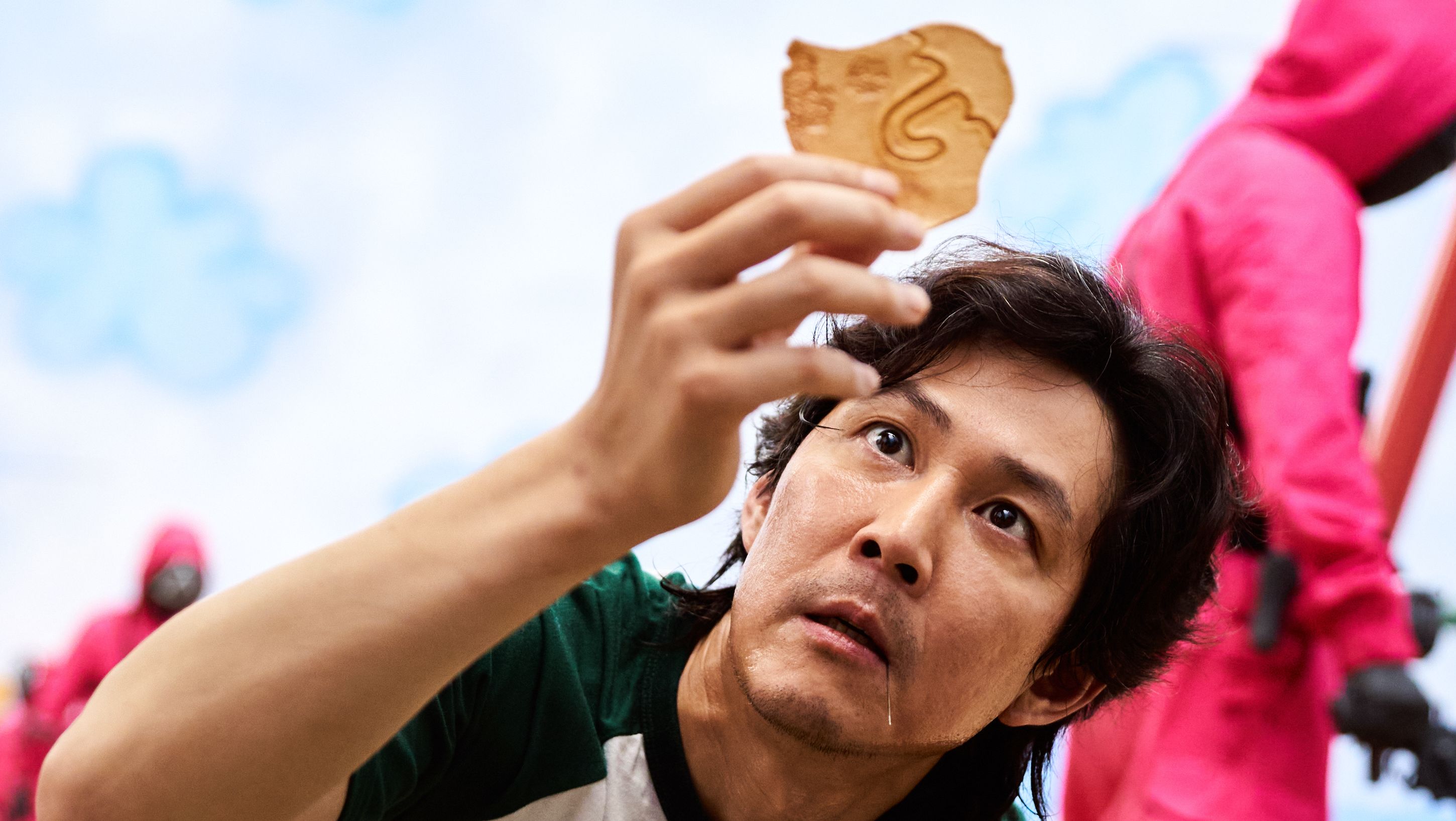
The hit Netflix series Squid Game is billed as a dystopian Korean drama—but the "games" of Squid Game are based on real-life kids' games, and force the characters to return to their childhoods to guess what might be coming up next. Creator Hwang Dong-hyuk told Variety that he took inspiration from the games he played in his own childhood, and kept the rules simple so that the show could focus on the characters. "The games portrayed are extremely simple and easy to understand," he told Variety. "That allows viewers to focus on the characters, rather than being distracted by trying to interpret the rules."
If bingeing Squid Game has made you curious about the children's "games" at the heart of the series, here's what we know about the different rounds and their real-life versions.
Recruiter Round: Ddakji
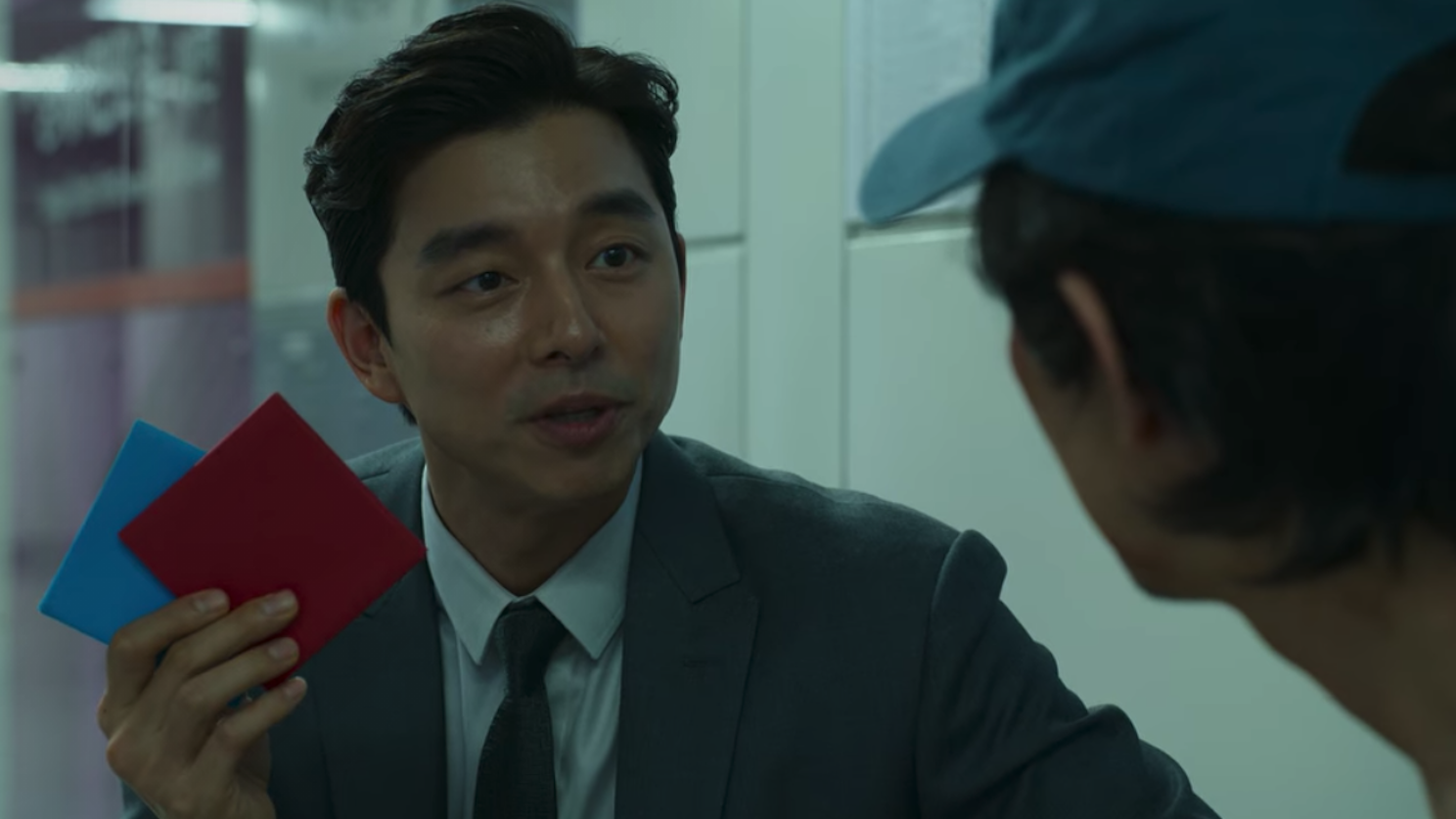
The show starts off with the traditional Korean game ddakji, also called ttakji, which is similar to the American '90s game Pog. Played with two tiles, the goal of the schoolyard game is to flip one tile, laying on the ground, by slamming it with the other. To flip the tile, you have to throw the other at a specific strength and angle, which usually takes practice. Though some ddakji tiles are made of rubber, you can also make the tiles is multiple sheets of square origami paper.
Round 1: Red Light, Green Light
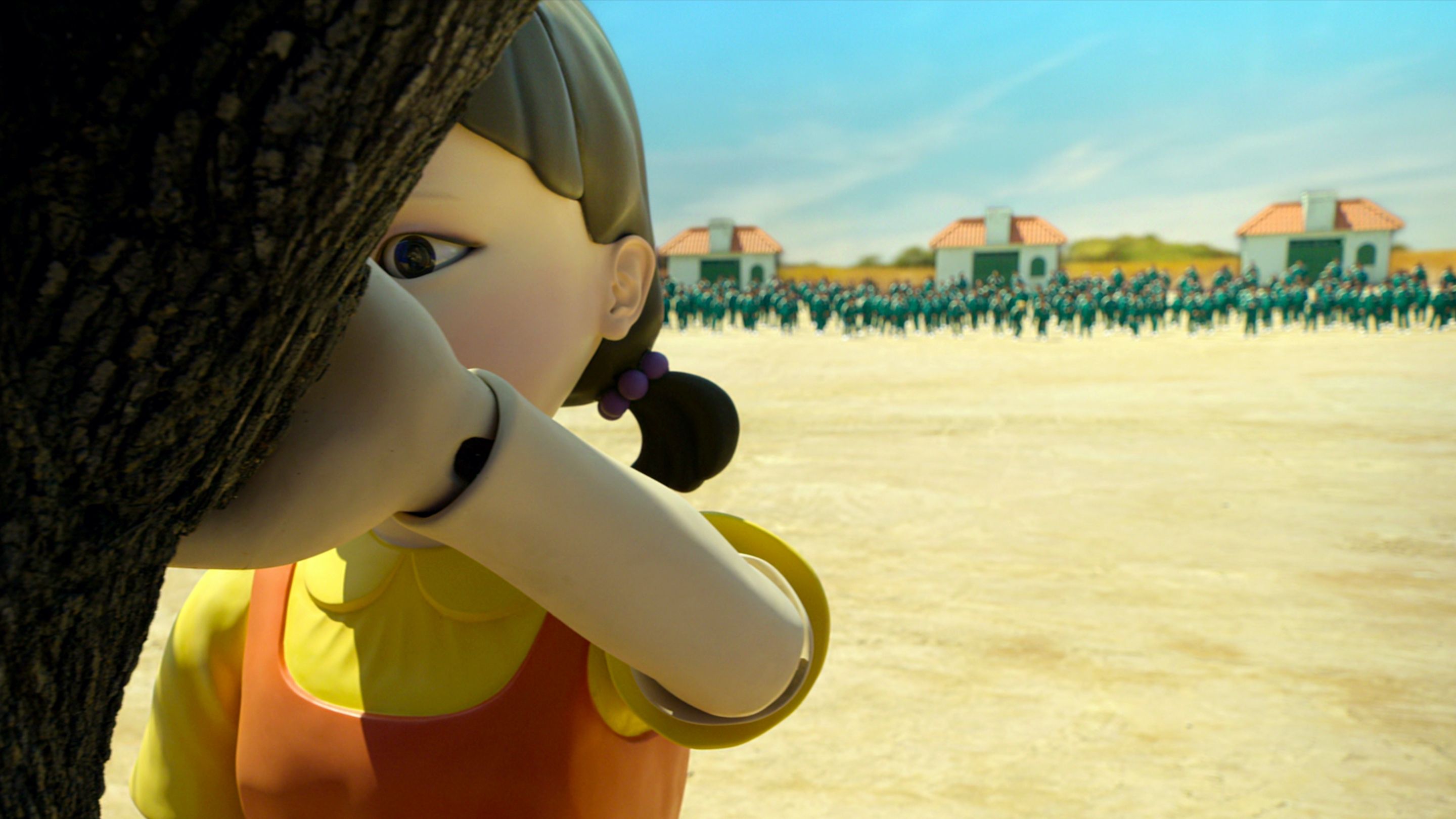
The Korean version of "Red Light, Green Light" has the same basic rules as what you may have played as a kid, where the runners have to freeze to keep from being caught during a red light. However, instead of just saying, "red light" and "green light" at random times, the tagger turns their back and sings the phrase that matches the game's Korean name (무궁화 꽃이 피었습니다). At that point the players can run, and they have to stop before the tagger finishes the phrase and turns around.
The Korean name directly translates to "the mugunghwa flower has bloomed." Mugunghwa is South Korea's national flower, known as the rose of Sharon in English. Though the phrase itself never changes, players can make the game more difficult by changing the speed of the song, such as saying the end of the phrase very fast.
Round 2: Honeycomb/Ppopgi
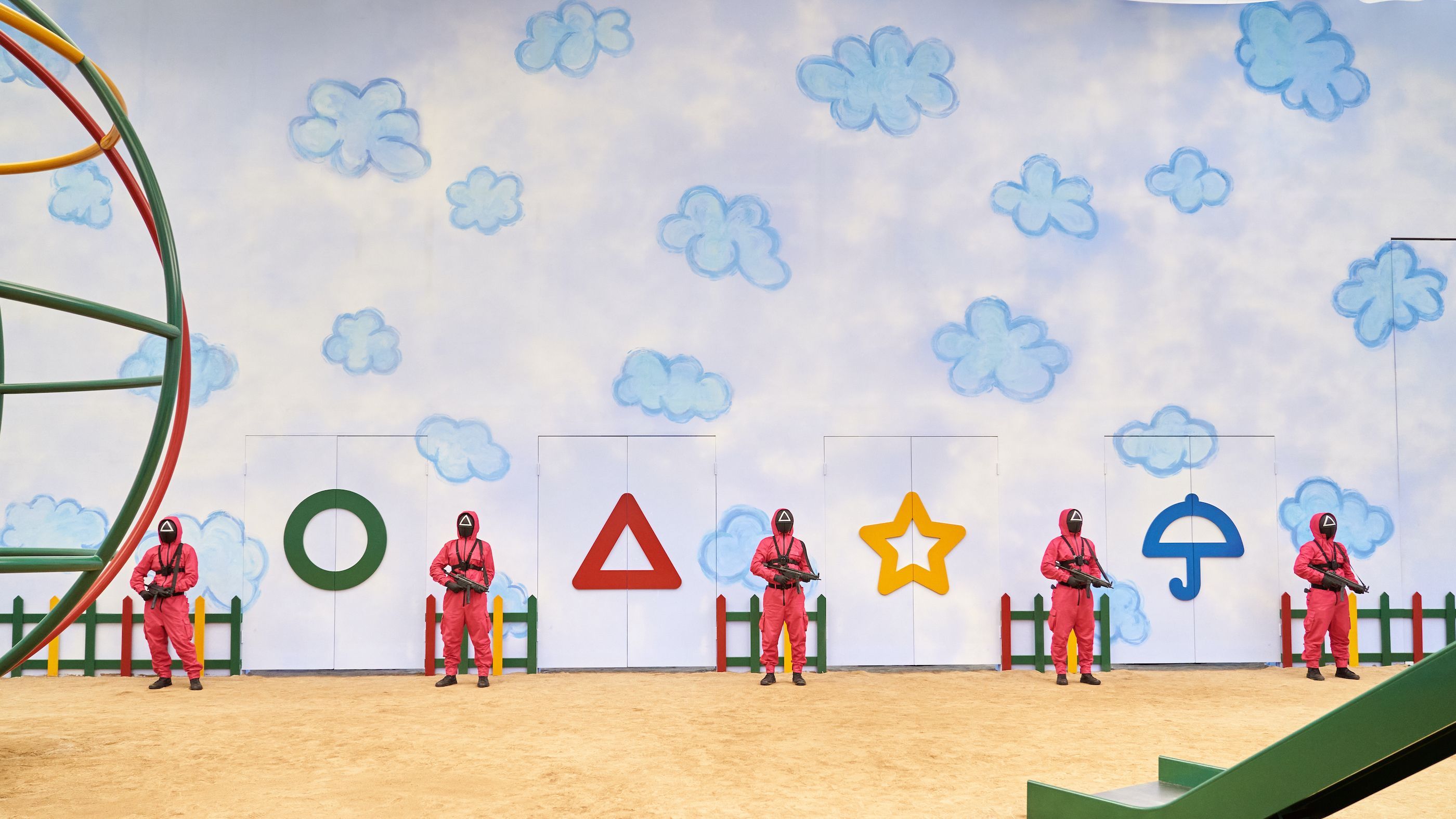
Translated as "honeycomb" by Netflix, the second game involves cutting stamped shapes out from a sugar honeycomb candy called ppopgi, also known as dalgona (last year's trendy coffee drink is named after the candy. The treat itself is made by melting any type of sugar, adding baking soda or powder as it cools, and pressing the mixture into a disc, followed by a stamp of any cookie-cutter shape you want.
As the flashback in Episode 3 showed, children buy these sweets from street vendors, who provided a small needle that kids would use to pluck out the candy. (Ppopgi directly translates as "to pluck.") Some vendors even exchange cleanly removed shapes for small toy prizes. A warning, the task is apparently as difficult in real life as it looks on the show.
Stay In The Know
Get exclusive access to fashion and beauty trends, hot-off-the-press celebrity news, and more.
Round 3: Tug of War
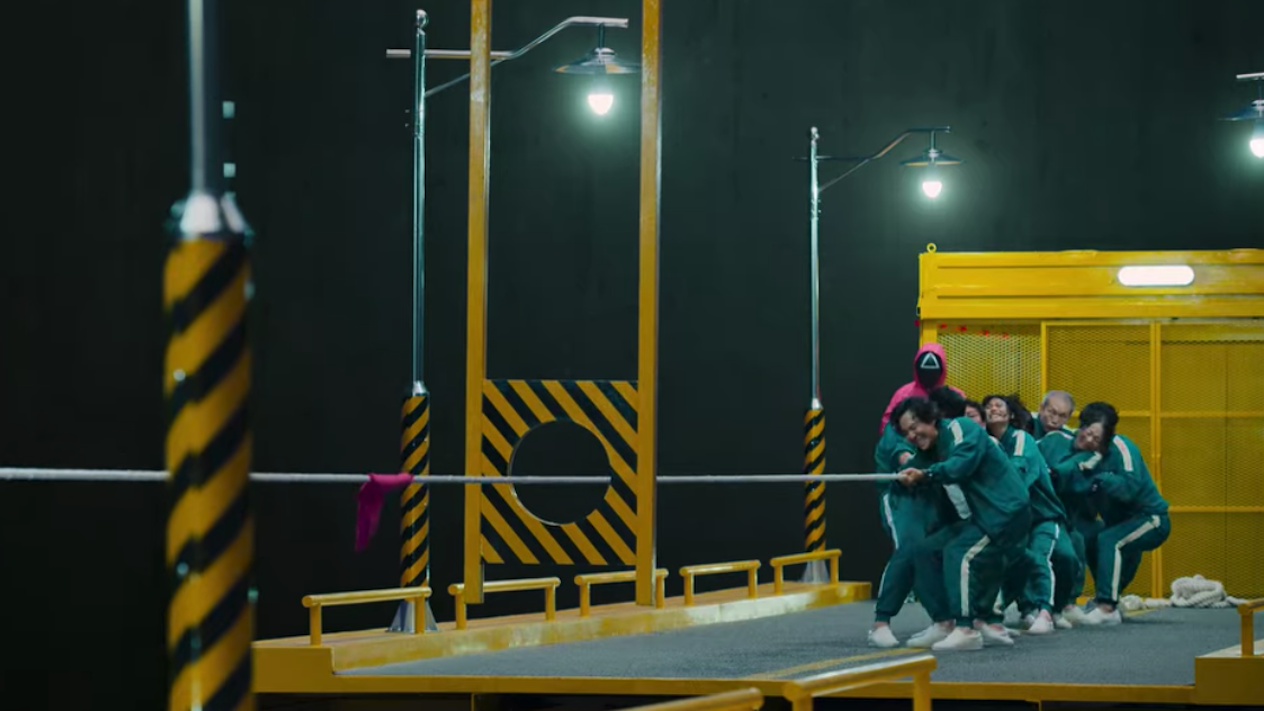
Of all of the games in Squid Game, tug of war is the most similar across Korean, U.S. and other international versions. Of course, usually you aren't chained to the rope or playing over an open platform. Known as juldarigi, or rope pulling, the game has been a popular festival game since ancient Korea, when it was played during the lunar festival. Still played at festivals today, and it's said the winning team ensures a bountiful harvest for their village.
Round 4: Marbles

In the fourth round of the Game, teams of two are given two sets of 10 marbles and told to play in any way they choose. The only rules are that the winner must win all of the marbles without using violence. The real-life angle comes from the marbles themselves, which are used around the world. Though no one knows where marbles originated, the earliest versions, stones smoothed in a river or by human force, have been found in the tombs of ancient Egyptians and they were played with by Native American tribes.
Also, if you haven't checked out competitive marble racing on YouTube, it's definitely worth a look.
Round 5: Glass Stepping Stones
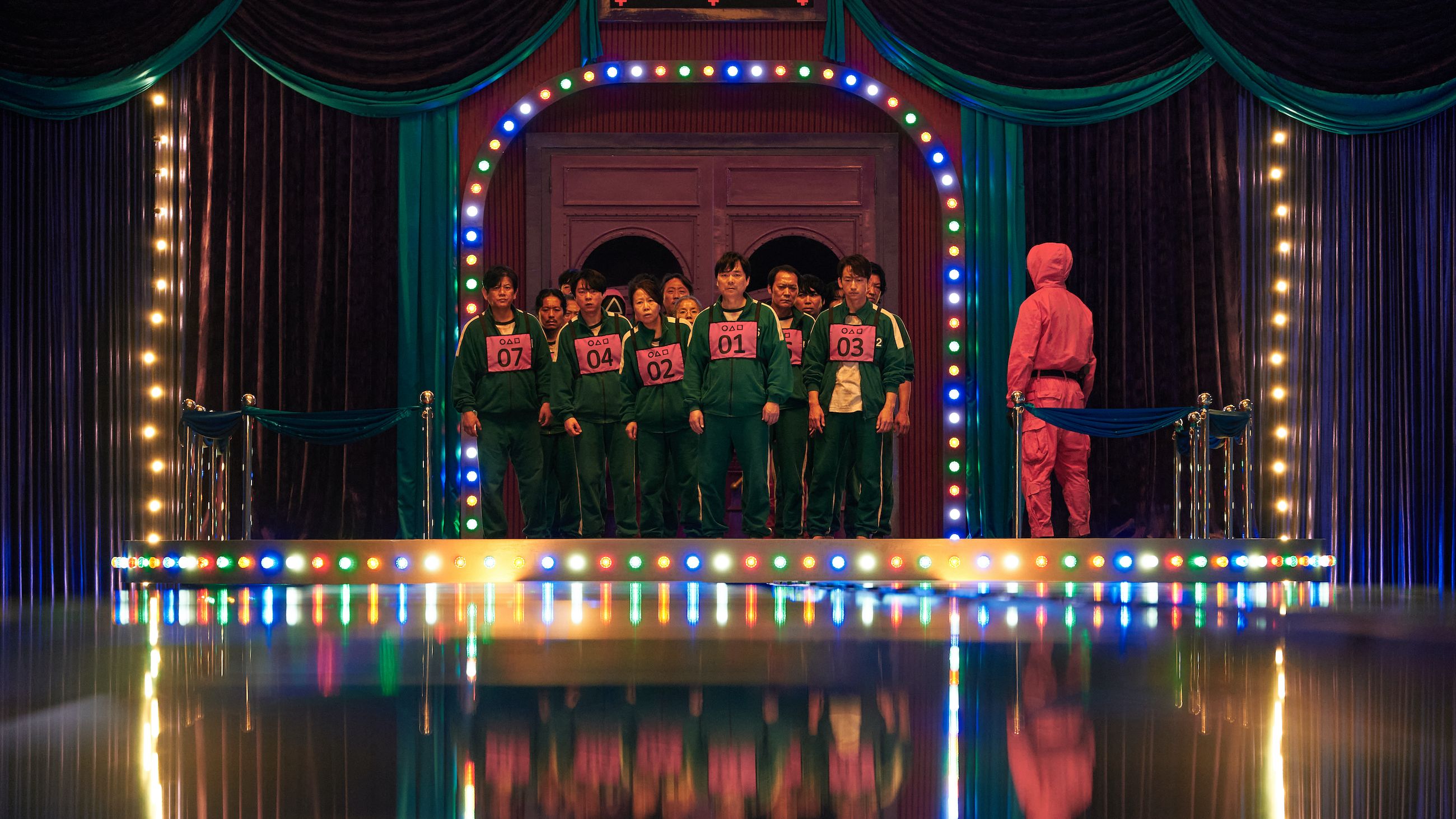
The glass bridge game appears to be inspired by balance games like hopscotch, but there's no real life equivalent (luckily). Players had to hop across a suspended bridge lined with panels of either normal or tempered glass. Choose the normal glass, and it shatters and falls. As for the player who could tell the difference, you really can tell when glass is tempered by looking for imperfections on its surface, like distortions or slight bending.
Final Round: Squid Game
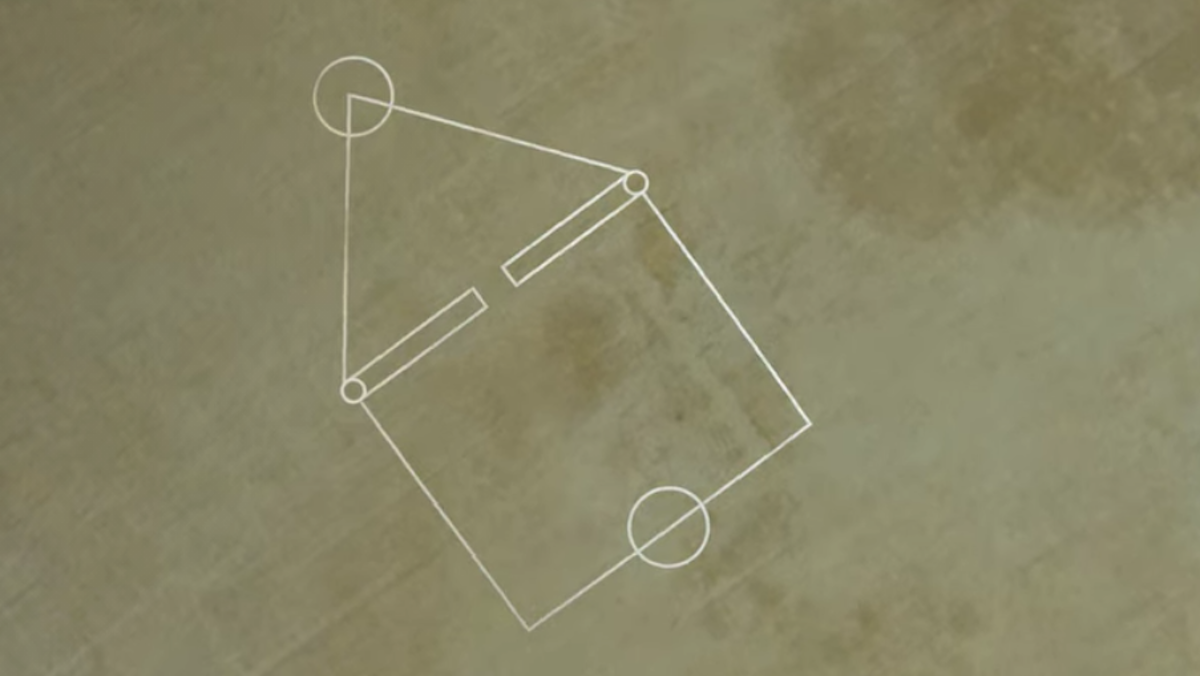
The show's titular game, a version of tag with attackers and defenders, was mostly played in South Korea in the '70s and '80s. Its name comes from the squid-liked playing field, a square with a triangle on top, with a "waist" of two rectangles at the center and circles at the top and bottom. The goal is for a member of the offense team to tap the circle, or "squid's head," at the top of the field with their foot, with the defense trying to stop them.
As Gi-hun describes in the show's opening scene, "Once the game starts, the defense can run around on two feet within bounds, while the offense outside the line is only allowed to hop on one foot. But if an attacker cuts through the waist of the squid outpacing the defense, he or she is given the freedom to walk freely on two feet. For whatever reason, we called that the secret inspector."
"After preparing for the final battle, the attackers gather at the entrance of the squid. In order to win, the attackers must tap the small closed-off space on the squid's head with their foot. If the defender pushes you out of the squid's line, you die. That's right. You die. Once you take the winning tap, you yell out, "Hurray." And, in that moment, I felt as if I owned the entire world," he continued.
Squid Game writer Hwang Dong-hyuk played the game himself as a kid, and the show describes it as violent, where the defense can do whatever's necessary, including pushing and pulling, to keep the offense from winning. Though of course, no one dies when playing the game in real life.
Related Story

Quinci is a Culture Writer who covers all aspects of pop culture, including TV, movies, music, books, and theater. She contributes interviews with talent, as well as SEO content, features, and trend stories. She fell in love with storytelling at a young age, and eventually discovered her love for cultural criticism and amplifying awareness for underrepresented storytellers across the arts. She previously served as a weekend editor for Harper’s Bazaar, where she covered breaking news and live events for the brand’s website, and helped run the brand’s social media platforms, including Instagram, Facebook, and Twitter. Her freelance writing has also appeared in outlets including HuffPost, The A.V. Club, Elle, Vulture, Salon, Teen Vogue, and others. Quinci earned her degree in English and Psychology from The University of New Mexico. She was a 2021 Eugene O’Neill Critics Institute fellow, and she is a member of the Television Critics Association. She is currently based in her hometown of Los Angeles. When she isn't writing or checking Twitter way too often, you can find her studying Korean while watching the latest K-drama, recommending her favorite shows and films to family and friends, or giving a concert performance while sitting in L.A. traffic.
-
 Tyla's Coachella Outfit Pairs Dolce & Gabbana With Pandora
Tyla's Coachella Outfit Pairs Dolce & Gabbana With PandoraThe singer wore a gold version of the crystal bra made famous by Aaliyah.
By Amy Mackelden Published
-
 How Kate Middleton Is Influencing George's Fashion Choices
How Kate Middleton Is Influencing George's Fashion ChoicesThe future king's smart blazer is straight out of Princess Kate's style playbook.
By Amy Mackelden Published
-
 King Charles "Couldn't" Meet Prince Harry During U.K. Visit
King Charles "Couldn't" Meet Prince Harry During U.K. Visit"It could actually bring down a court case."
By Amy Mackelden Published
-
 Where Are the Members of The Squad From 'Bad Influence: The Dark Side of Kidfluencing' Now?
Where Are the Members of The Squad From 'Bad Influence: The Dark Side of Kidfluencing' Now?The names in the Netflix docuseries have fallen out of touch with subject Piper Rockelle.
By Quinci LeGardye Published
-
 Where Is Piper Rockelle Now? What We Know About the Subject of 'Bad Influence: The Dark Side of Kidfluencing'
Where Is Piper Rockelle Now? What We Know About the Subject of 'Bad Influence: The Dark Side of Kidfluencing'The documentary examines a kidluencing empire and the lawsuit against it.
By Quinci LeGardye Published
-
 Who Won 'Million Dollar Secret?' All About Winner Cara Kies
Who Won 'Million Dollar Secret?' All About Winner Cara KiesHere's what to know about the In-N-Out line cook who took home the prize pot.
By Quinci LeGardye Published
-
 Sydnee Falkner Is More Than the 'Million Dollar Secret' Mean Girl
Sydnee Falkner Is More Than the 'Million Dollar Secret' Mean GirlThe reality star dishes on everything from her regrets and the finale to what you didn’t see on-screen in Netflix’s latest hit.
By Quinci LeGardye Published
-
 'Pulse' Season 2: Everything We Know
'Pulse' Season 2: Everything We KnowWe need to know about the future of the central will-they-won't-they STAT.
By Quinci LeGardye Published
-
 Meet the Cast of 'Pulse'
Meet the Cast of 'Pulse'We would trust the doctors at Maguire Medical Center with our lives.
By Quinci LeGardye Published
-
 Meet the Cast of 'Love on the Spectrum' Season 3
Meet the Cast of 'Love on the Spectrum' Season 3Netflix's Emmy-winning dating show returns with both fan-favorite couples and standout newcomers.
By Quinci LeGardye Published
-
 Who Is the 'Million Dollar Secret' Host? Meet Peter Serafinowicz
Who Is the 'Million Dollar Secret' Host? Meet Peter SerafinowiczIt's safe to say we're now obsessed with the British comedian keeping The Stag in order.
By Quinci LeGardye Published